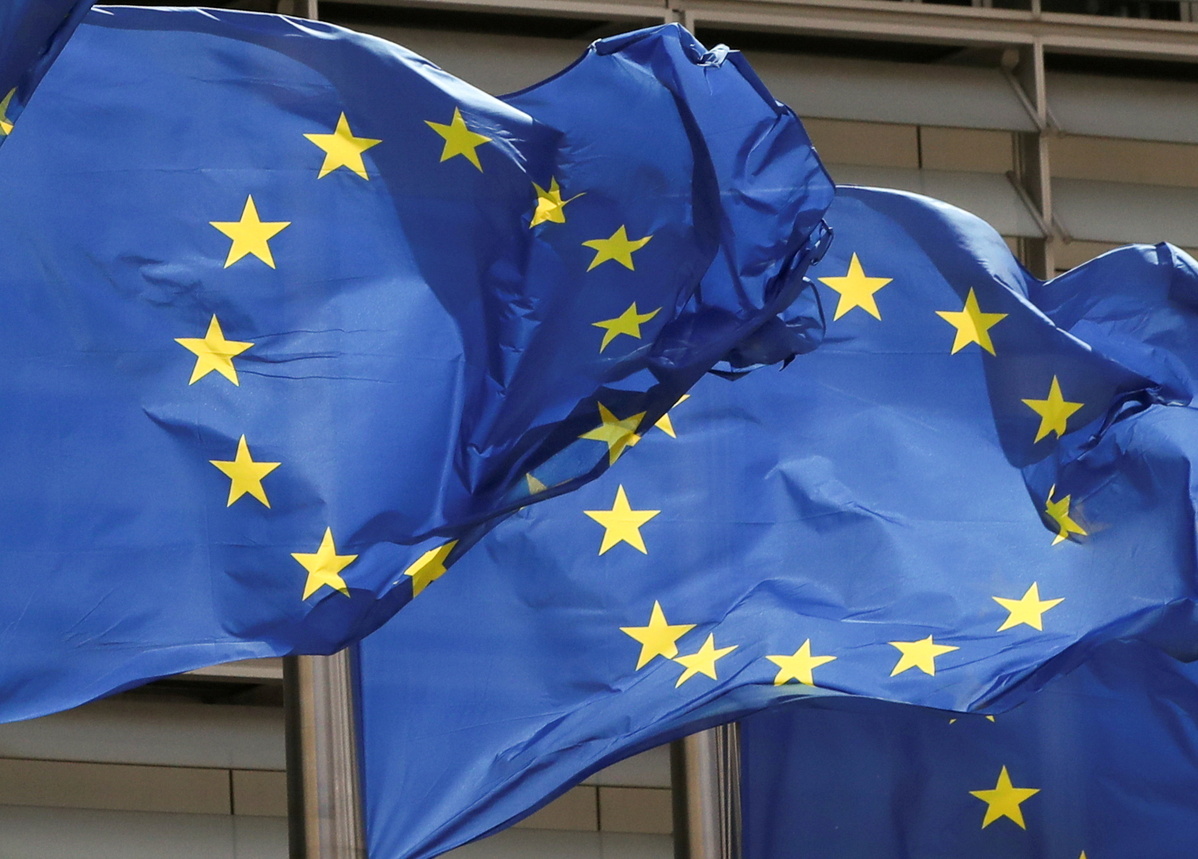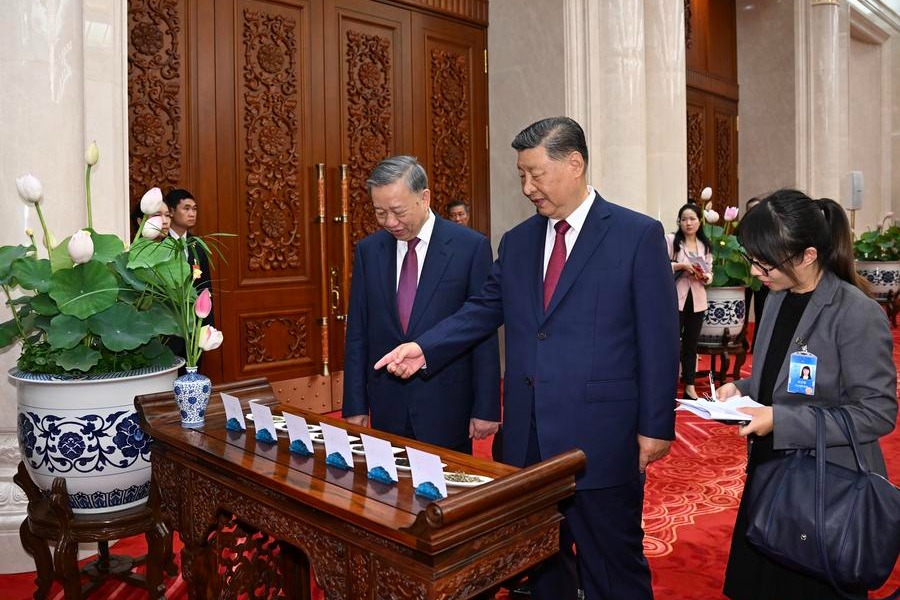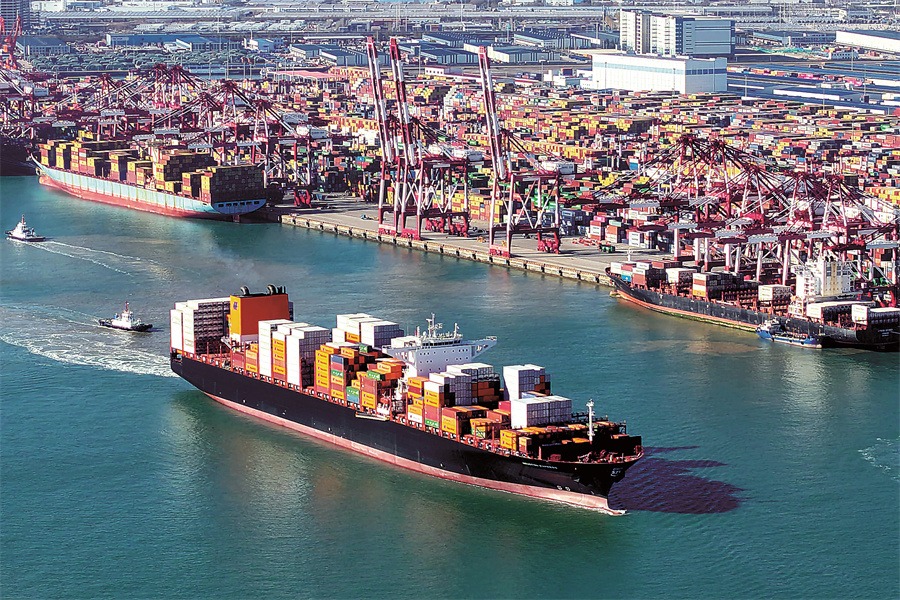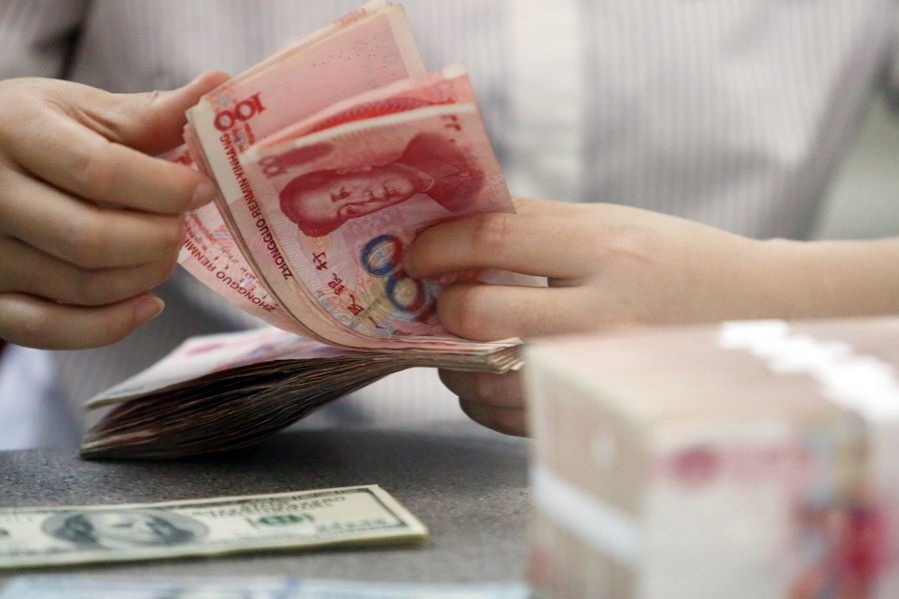Historical turning point for Europe


While EU thinks of 'de-risking' to cope with uncertainties, China and Europe should, instead, coordinate to inject more stability to the world
The Future of European Competitiveness report, which was unveiled by the European Commission on Sept 9, stated that Europe faces an "existential challenge".The report believes a deteriorating external environment is hindering the economic growth of Europe, and the three conditions that have underpinned Europe's prosperity — an open global market, cheap energy and a stable geopolitical environment — are eroding, leading to shrinking trade, an energy crisis and security threats.
Europe has long been seeking solutions to a world in flux. In June 2023, the European Union published its first European Economic Security Strategy. In January this year, it introduced the European Economic Security Package. At the heart of the EU's approach to a changing world is "de-risking", which aims to bolster supply chain resilience and protect Europe's economic security.
In a joint article published in the Financial Times on May 27, French President Emmanuel Macron and German Chancellor Olaf Scholz stated that "Europe is experiencing its Zeitenwende (historical turning point)" and it must strengthen its sovereignty. The vision of the Future of European Competitiveness report is in line with the approach taken by the EU following the outbreak of the Ukraine crisis.
The report proposed that the EU should be a leader in new technologies, a beacon of climate responsibility and an independent player on the world stage. These goals reflect the consensus of the era and the common pursuits of countries around the world.
The outbreak of the Ukraine crisis is a reflection of the fundamental shift in the global landscape. For three decades since the collapse of the Soviet Union, there has been a structural contradiction in the Commonwealth of Independent States region between Russia and the West. This ultimately led to the outbreak of the Ukraine crisis, which has changed the global landscape in the following ways.
First of all, the balance of power among major countries has shifted. A "collective West" has formed, with NATO and the EU expanding. The EU has evolved into an organization that integrates the political, military, security and foreign affairs of member states, and NATO has become an increasingly expansionary and aggressive military bloc, with the two groupings strengthening their coordination.
Second, as the Russian development path after the collapse of the Soviet Union lacks appeal among CIS countries, the region has witnessed a growing division in geopolitical security, a trend that has only been exacerbated by the Ukraine crisis. It is inevitable that the Eurasian region will see turbulence and divisions, even a reshuffling of power.
Third, bloc confrontations are escalating. The Asia-Pacific region is the center of the global economy, where the strategic interests of major countries, such as the United States, China, Japan, Russia and India, converge. The region has inherited much of the geopolitical legacy of the Cold War. By pushing its "Indo-Pacific" strategy, the US aims to contain China through military encirclement, and thus preserve its hegemony in the region.
Fourth, the world faces increased risk of an arms race that threatens global security. As relations between Russia and the West deteriorate, geopolitical tensions among major powers are mounting, and countries are preoccupied with preventing potential conflicts, terrorism and extremism lurking. The risk that the global economy faces has also reached a new high.
In a changing geopolitical landscape and intensifying major-country competition, Europe faces unprecedented challenges. In such a context, it needs to find a new anchor of stability, and a healthy China-Europe relationship can be a source of its stability.
First, China and Europe do not have fundamental conflicts of interest or strategic contradictions. They have greater common interests than differences. Reeling from the impacts of the COVID-19 pandemic, the Ukraine crisis and a deluge of US industry subsidies, the EU faces a worsening security situation, an energy crunch, and outflows of capital and industry. As a result, the EU's overall strength is declining, and it is struggling to attain strategic autonomy.
China, on its part, is committed to cooperating with Europe, believing that China and Europe are partners rather than adversaries, and opportunities rather than threats to each other. China promotes the healthy development of bilateral ties, and supports Europe's endeavor to achieve strategic independence.
Second, China-Europe cooperation can enhance the supply chain resilience and economic security of Europe. Last year, the bilateral trade volume reached $783 billion, and the two-way investment stock exceeded $250 billion. The China-Europe freight train service, which was launched in 2011, has reached the milestone of 100,000 trips, transporting more than 11 million twenty-foot equivalent units of goods, valued at more than $420 billion.
China and Europe also have shared interests in tackling global challenges such as the digital transformation and climate change.
By collaborating on clean energy, the digital economy and artificial intelligence, the two sides can advance the sustainable development of the world. To this end, China, which is committed to promoting higher-level opening-up, will provide an open, transparent and inclusive business environment for European enterprises. As two of the world's major economies, China and Europe are inherently important to each other.
Today's world faces traditional and non-traditional security threats, and an increasingly volatile geopolitical landscape. Uncertainties in the world economy are growing, and security threats are becoming more prominent. Under these circumstances, China and Europe should respect each other, strengthen cooperation and enhance coordination. By bolstering bilateral relations, they can better meet external challenges, achieve their development goals and inject more stability and certainty to the changing world.
The author is deputy director and a research fellow at the Institute of Russia, Eastern European &Central Asian Studies at the Chinese Academy of Social Sciences. The author contributed this article to China Watch, a think tank powered by China Daily.
The views do not necessarily reflect those of China Daily.
Contact the editor at [email protected].































